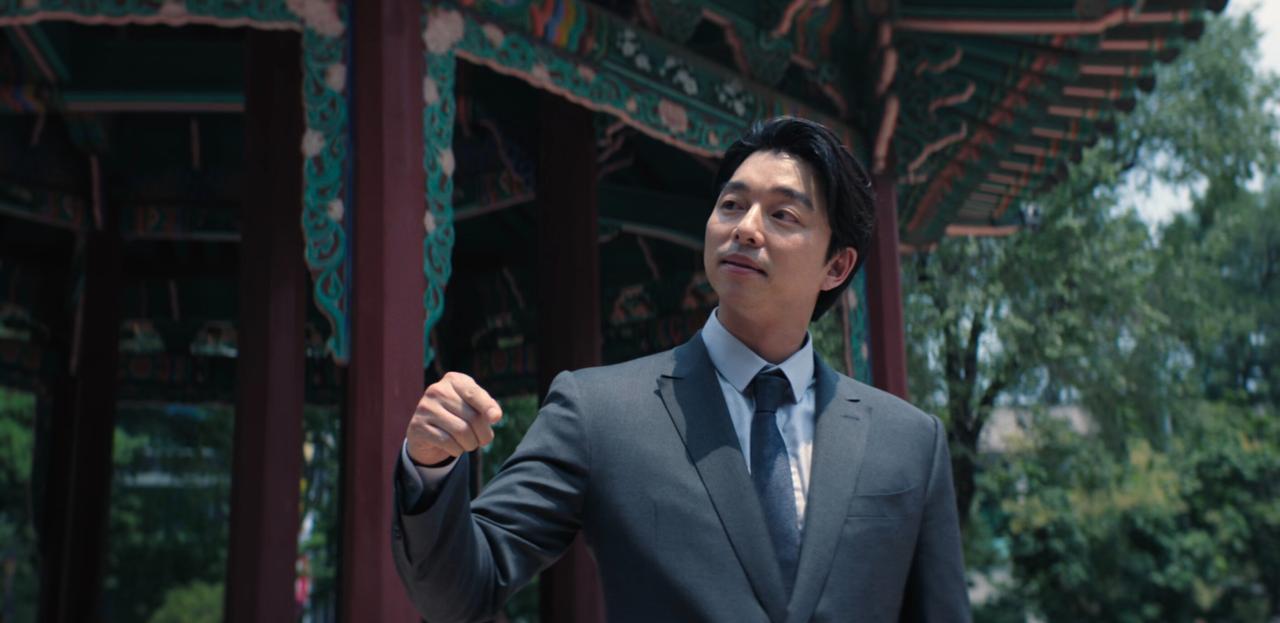Squid Game Histoire Vraie? The wildly popular Netflix series, “Squid Game,” isn’t just a thrilling spectacle; it’s a chilling reflection of real-world struggles. This exploration delves into the socio-economic realities of South Korea that inspired the show’s brutal games and desperate characters, examining the stark inequalities and societal pressures that resonate with the show’s themes. We’ll look at the debt crisis, the pressure cooker of Korean society, and how the games themselves reflect real-life competition and the lengths people go to survive.
We’ll compare the fictional games to real-life extreme sports and analyze the psychological impact on both the characters and viewers. Prepare to discover how much of “Squid Game” is rooted in the harsh realities of modern South Korea, uncovering the unsettling truths behind the captivating drama.
So, you’re wondering about “Squid Game histoire vraie”? While the show’s fictional, the desperation it depicts sadly reflects real-world struggles. Think about the scale of those struggles – it’s almost like the breathtaking spectacle of the shanghai dragon drone show , but instead of awe-inspiring dragons, it’s a fight for survival. The contrast highlights how far removed the fantasy of the show is from the harsh realities many face, reminding us of the “Squid Game” themes.
The Inspiration and Reality Behind “Squid Game”
The South Korean Netflix sensation, “Squid Game,” captivated audiences worldwide with its brutal depiction of desperate individuals competing for life-changing money. While fictional, the show’s themes are deeply rooted in the socio-economic realities of South Korea, reflecting anxieties about debt, inequality, and the pressures of a highly competitive society. This article explores the real-life inspirations behind the show’s narrative, examining the societal factors that contribute to the desperation and struggles portrayed on screen.
Socio-Economic Factors Influencing “Squid Game”
South Korea’s rapid economic growth has created a stark contrast between the wealthy elite and a significant portion of the population struggling with debt and economic insecurity. The intense pressure to succeed academically and professionally, coupled with a highly competitive job market and a rigid social hierarchy, contributes to widespread stress and anxiety. This pressure often manifests in extreme measures, mirroring the desperation seen in the show.
Real-Life Situations Mirroring the Series
Numerous real-life instances in South Korea parallel the desperation and debt portrayed in “Squid Game.” The prevalence of “debt traps,” where individuals become ensnared in cycles of high-interest loans, is a significant issue. Stories of individuals resorting to extreme measures to alleviate their financial burdens, such as taking on dangerous jobs or engaging in illegal activities, are not uncommon.
The intense pressure to maintain a certain social standing and the stigma associated with financial failure also contribute to this.
South Korean Societal Pressures and Their Impact
South Korean society places immense pressure on individuals to achieve academic excellence, secure prestigious jobs, and maintain a respectable social standing. Failure to meet these expectations can lead to feelings of shame, isolation, and despair. The emphasis on conformity and the hierarchical structure of society can further exacerbate these pressures, leaving many feeling trapped and overwhelmed.
Comparison of Fictional and Real-Life Competitions
| Squid Game Game | Real-Life Equivalent | Risk Level | Outcome Stakes |
|---|---|---|---|
| Red Light, Green Light | Extreme Hide-and-Seek, Parkour Challenges | High (risk of injury, elimination) | Survival in the game |
| Honeycomb Ttakji | Traditional Korean game, skill-based competitions | Medium (risk of failure, elimination) | Survival in the game |
| Tug-of-War | Competitive Tug-of-War, team sports | High (risk of injury, elimination) | Survival in the game |
| Marbles | High-stakes gambling, competitive card games | High (psychological pressure, betrayal) | Survival in the game |
Debt and Poverty in South Korea
The issue of debt in South Korea is a complex one, impacting individuals, families, and the overall societal fabric. The show’s depiction of debt, while dramatized, highlights the very real struggles faced by many South Koreans.
Prevalence and Consequences of Debt
High levels of household debt are a significant concern in South Korea. The consequences can range from financial hardship and stress to homelessness and even suicide. The burden of debt often falls disproportionately on vulnerable populations, exacerbating existing inequalities.
Societal Stigma Associated with Debt
Debt carries a strong social stigma in South Korean culture. Individuals struggling with debt may face shame, ostracization, and difficulty accessing essential services. This stigma often prevents people from seeking help, further compounding their problems.
Comparison of Fictional and Real Debt

The portrayal of debt in “Squid Game” reflects the desperation and hopelessness experienced by many individuals burdened by financial obligations. While the game’s debt is extreme, it captures the feeling of being trapped and the lengths to which people might go to escape financial ruin. The show’s exaggeration serves to highlight the severity of the issue.
Forms of Debt in South Korea

- High-interest loans from private lenders
- Credit card debt
- Student loans
- Mortgages
- Business loans
So you’re wondering about “Squid Game histoire vraie”? While the show’s fictional, the desperation it depicts is sadly real in many parts of the world. Think about the sheer scale of coordinated movement needed for a spectacle like the one shown at the china drone show 2058 , and consider how that level of organization could be used for very different purposes.
That contrast highlights the chilling aspects of the Squid Game’s premise.
The Games and Their Parallels to Reality
The games in “Squid Game,” while fantastical in their setting, draw parallels to real-life situations and societal pressures. Their symbolic meaning and escalating violence reflect the brutal realities of competition and survival in a highly competitive society.
Symbolic Meaning of the Games
Each game in “Squid Game” holds symbolic meaning, representing various aspects of South Korean society and the struggles faced by its people. For example, the children’s games highlight the innocence lost in the pursuit of survival, while the escalating violence reflects the desperation and brutality that can arise from extreme economic pressure.
Real-Life Equivalents of the Games

While the games are exaggerated for dramatic effect, they draw inspiration from various aspects of real-life competitions and social dynamics. The children’s games represent a nostalgic past, while the later games highlight the ruthlessness of competition for survival. The games are not direct copies, but more of an artistic expression of the harsh realities of competition and survival.
Games Highlighting Competition and Survival
The games are designed to showcase the brutal realities of competition and survival under extreme pressure. The players are forced to make difficult moral choices, betray each other, and ultimately fight for their lives. The escalating violence and risk underscore the desperation and desperation of their situation.
So you’re wondering about “Squid Game histoire vraie”? While the show’s fictional, its themes of desperation and class struggle resonate with real-world tragedies. Think about the human cost of societal pressures, similar to the impact of events like the fullerton plane crash , which highlighted the vulnerability of individuals facing unforeseen circumstances. Ultimately, “Squid Game histoire vraie” prompts us to consider the harsh realities behind the games’ dramatic premise.
Chronological Progression of Violence and Risk
- Red Light, Green Light: A seemingly simple game with a high risk of elimination.
- Honeycomb Ttakji: A skill-based challenge with a high failure rate.
- Tug-of-War: A team-based game requiring cooperation and strength, with a high risk of injury.
- Marbles: A game of trust and betrayal, with high psychological pressure.
- Glass Stepping Stones: A physically demanding game with a high risk of death.
- Squid Game: A final showdown of physical strength and cunning.
“Squid Game” and Class Inequality
The show vividly portrays the stark class divisions in South Korean society, highlighting the power dynamics between the wealthy elite and the impoverished participants. The visual cues used in the show emphasize this disparity.
Portrayal of Class Divisions
“Squid Game” starkly contrasts the opulent lifestyles of the VIPs, who gamble on the players’ lives, with the desperate circumstances of the participants. This contrast emphasizes the vast wealth disparity and the indifference of the wealthy towards the suffering of the poor.
Power Dynamics Between Elite and Impoverished
The show clearly depicts the power imbalance between the wealthy VIPs who control the games and the impoverished players who risk their lives for a chance at financial freedom. The VIPs’ detachment and the players’ desperation highlight the systemic inequalities present in the society.
Visual Cues Representing Class Differences
The show uses visual cues to emphasize the class divide. The VIPs are shown in luxurious settings, wearing designer clothes, and enjoying lavish meals, while the players are dressed in drab uniforms and live in cramped, impoverished conditions. The contrast is visually striking and deliberately emphasized.
Visual Contrast Between VIPs and Players
Imagine a scene: On one side, a lavish VIP lounge with crystal chandeliers, gourmet food, and elegantly dressed individuals sipping champagne. On the other, a stark, desolate arena where players, dressed in matching green tracksuits, are huddled together, exhausted and desperate, their faces etched with fear and desperation. This stark visual contrast underscores the immense gap between the wealthy elite and the impoverished participants.
Psychological Impact of the Games
The games in “Squid Game” have a profound psychological impact on the participants, pushing them to their physical and mental limits. The show explores the moral dilemmas faced by the players under extreme pressure, as well as the manipulative tactics employed by the game organizers.
Psychological Effects on Participants
The games inflict significant psychological trauma on the participants. They experience intense fear, stress, and moral dilemmas. The constant threat of death and the pressure to betray others lead to emotional breakdowns and mental instability. The physical challenges further exacerbate the psychological strain.
Moral Dilemmas Faced by Players
The players are repeatedly forced to make difficult moral choices, often involving betrayal and sacrifice. The high stakes and the pressure to survive lead to intense internal conflicts and ethical compromises. The show explores the complex moral implications of these decisions.
Psychological Manipulation Tactics, Squid game histoire vraie
The game organizers use various psychological manipulation tactics to control the players. These tactics include playing on their desperation, creating a sense of hopelessness, and exploiting their vulnerabilities. The manipulation is subtle yet effective, highlighting the psychological warfare inherent in the games.
Impact of Violence and Desperation on Viewers
The show’s depiction of violence and desperation can be disturbing for viewers. The intensity of the games and the players’ struggles can evoke strong emotional responses, prompting reflection on the societal issues highlighted in the series. The show’s impact varies from viewer to viewer, but it often sparks discussions on morality, survival, and social inequality.
Epilogue
Ultimately, “Squid Game Histoire Vraie” reveals a disturbingly close connection between the show’s fictional world and the very real struggles faced by many in South Korea. While the games themselves are exaggerated for dramatic effect, the underlying themes of debt, inequality, and the pressure to succeed are undeniably present. The show serves as a stark reminder of the systemic issues that drive individuals to desperate measures, prompting reflection on the societal structures that create such disparities.
It’s a powerful story that transcends entertainment, offering a glimpse into a harsh reality masked by a captivating narrative.
Common Queries: Squid Game Histoire Vraie
Is “Squid Game” based on a true story?
No, “Squid Game” is not based on one specific true story. However, it draws heavily from real-world socio-economic issues in South Korea, particularly the high levels of debt and societal pressure.
Are the games in “Squid Game” based on real games?
While the specific combinations and deadly stakes are fictional, some of the individual games are reminiscent of children’s games played in South Korea and elsewhere. The show uses familiar game mechanics to create a chilling contrast.
How accurate is the show’s portrayal of South Korean society?
The show exaggerates certain aspects for dramatic effect, but it accurately reflects the existence of significant issues like debt, inequality, and the pressure to succeed in South Korea.
What is the show’s message?
The show critiques social and economic inequality, highlighting the desperation that can result from extreme poverty and the pressures of a competitive society. It also explores themes of morality and human nature under extreme stress.
